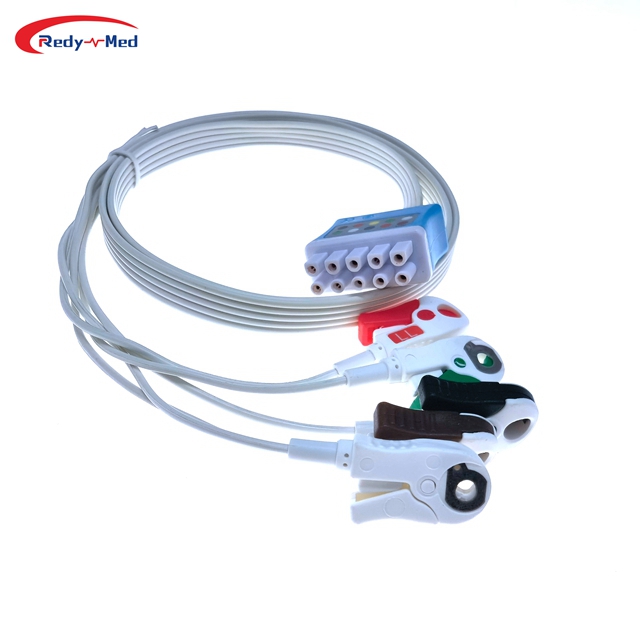
- Home > News > Industry News
What are the different types of ECG cables available?
2024-03-21 00:24:02
Exploring the Different Types of ECG Cables for Various Medical Applications

Electrocardiogram (ECG) cables are crucial components in monitoring and diagnosing heart-related conditions. They allow medical professionals to capture electrical signals from the heart and convert them into waveforms for analysis. Different ECG cables are designed to suit specific patient needs and medical settings. Let's delve into the world of ECG cables and explore their various types, applications, and features.
1. Standard ECG Cables
Standard ECG cables are the most common type used in medical facilities worldwide. They are available in various lead configurations, including 3-lead, 5-lead, and 12-lead cables. These cables connect to the patient's chest electrodes and carry the electrical signals to the ECG machine for analysis. Standard ECG cables are typically color-coded to ensure proper lead placement and connection.
2. Wireless ECG Cables
Advancements in technology have led to the development of wireless ECG cables. These innovative cables eliminate the need for physical cables between the electrodes and the ECG machine. Wireless ECG cables use Bluetooth or other wireless technologies to transmit data, enhancing patient comfort and mobility during monitoring. They are particularly useful in ambulatory settings or for patients requiring long-term ECG monitoring.
3. ECG Stress Test Cables
ECG stress test cables are specifically designed for exercise or stress testing purposes. These cables feature additional shielding and durability to withstand the rigors of vigorous physical activity. They are often equipped with high-quality lead wires and connectors to ensure accurate signal transmission during stress tests.
4. Holter Monitoring Cables
Holter monitoring involves continuous ECG recording over an extended period, typically 24 to 48 hours. Holter monitoring cables are designed with patient comfort in mind, allowing unrestricted movement during daily activities. These cables are lightweight, durable, and easy to apply. They often come with lead wires that can be secured discreetly on the patient's body.
5. Pediatric ECG Cables
When examining infants or young children, pediatric ECG cables are used due to their smaller size and specialized connectors. These cables ensure proper signal acquisition from smaller electrode placements on pediatric patients. They are also designed with extra safety features, such as insulation and reduced skin irritation, to prioritize the well-being and comfort of young patients.
Conclusion
ECG cables play a vital role in the accurate measurement and interpretation of the electrical activity of the heart. They come in various types, including standard, wireless, stress test, holter monitoring, and pediatric cables, catering to different medical applications and patient populations. Understanding the different types of ECG cables available is essential for healthcare professionals to select the most appropriate cable for each patient's needs, promoting accurate diagnosis and effective treatment.
Get the latest price? We'll respond as soon as possible(within 12 hours)




